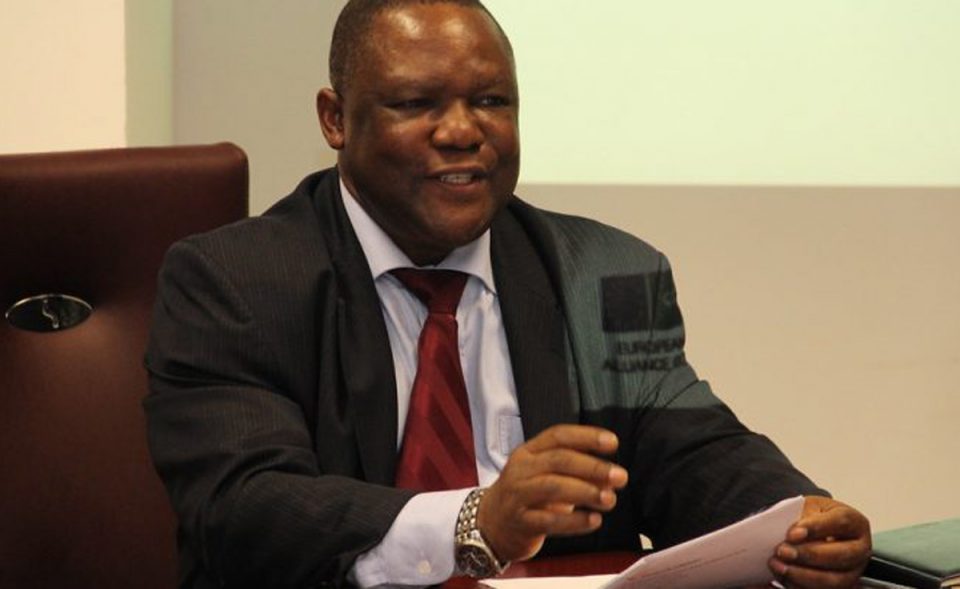- Says building new schools, hospitals impossible
- Urges FG to cut back worthless expenditures
An erstwhile Deputy Governor of the Central Bank of Nigeria (CBN), Dr. Obadiah Mailafia, has warned that Nigeria risks sliding into the realm of debt-distressed nations with the increasing ratio of revenue to debt service.
Mailafia, a presidential candidate of African Democratic Congress (ADC) in the 2019 general election, lamented that in debt distress, all the resources would be used to service debt rather than building economic, mental, social and strategic infrastructure that could guarantee citizens a better life.
He expressed this concern in a four-page response to THISDAY’s inquiries on the disturbing percentage of national revenue to debt service.
A budget implementation report had shown that the federal government spent N1.8 trillion in debt servicing in the first five months of the 2021 fiscal year, representing 98% of total revenue earned during that period.
Within the same timeframe, the report had revealed that the federal government earned N1.84 trillion in total revenue, which according to official records, represented a massive shortfall of the projected figure of N3.32 trillion.
In 2020, the federal government generated N3.25 trillion revenue compared with N2.34 trillion it spent on debt servicing, indicating that 72% of the national revenue went into servicing both domestic and external loans.
Fitch Ratings, an international credit rating agency, had projected that Nigeria’s debt to revenue ratio could rise to 395% by 2022 with a proviso that the key challenge to debt sustainability stemmed from low fiscal revenue.
With these trends yesterday, Mailafia expressed grave concern that a situation where debt-servicing obligations outstrip capital expenditures or capex allocation would be a rather worrisome one.
CBN’s former deputy governor, also, lamented an accelerating trend in the rise of both the volume of debt and the percentage of national revenue set aside for servicing the country’s repayment obligations.
Judging by the laws of statistical probability, Mailafia observed that the change in percentage of revenue to debt servicing “is likely to rise very substantially in the coming year as Fitch predicted in its March 2021 ratings
“However, I do not think it is likely to reach the alarming figures that Fitch has put forward. Fitch is right to ring the alarm bells. If that unhappy scenario should see the light of day, we would become a debt-distressed nation.”
He explained the implication of the trend for the future of the country, which according to him, suggested that all resources would be devoted to meet the country’s debt repayment obligations or schedule.
The former apex banker noted that all resources “would be going to debt-servicing instead of building schools, hospitals and clinics – instead of building our infrastructures and ensuring a better life for our people.
“We live in hard times. Inflation and unemployment are spiraling out of control, in the context of slow growth, geopolitical tensions and widespread insecurity.”
“Fitch has recently made a forecast to the effect that by the end of 2022, we shall need more than 395% of our revenues to service our debt obligations. It sounds quite dramatic, to be honest with you.
“Nigeria’s total stock of debt stands at $87.239 billion in dollar terms). The external component of the total national debt stock stands at US$32.86 billion.
“Nigeria’s current debt to GDP ratio is estimated to be 31.94per cent. It has almost doubled from a low of 17.4per cent in 2014. “The National Assembly has approved yet another binge of borrowing worth an additional billions of dollars.
“You and I know that you do not use GDP to repay your debt. You use government revenue receipts to service your debts. In 2014, before the current APC-led administration came to power, the erstwhile President Goodluck Jonathan administration paid N500 billion for debt servicing.
“This amounted to a mere 10% of total government revenue. We were in a relatively comfortable position. In the following year of 2015, coinciding with a global recession and precipitating fall in world oil prices, the debt repayment bill tripled to the figure of N1.5 trillion, amounting to 30% of public revenue earnings.”
By 2017, the former apex banker said the figure galloped “to N3 trillion, which amounted to 61.6% of government revenue. In 2020, the federal government made a total of N3.25 trillion in revenue while spending N2.34 trillion in debt-servicing.
“This amounted to 72% of revenue going into servicing our loans for that year. It is instructive that during the same year the government spent only N1.7 trillion on capital expenditure,” Mailafia pointed out with concern.
Suggesting antidotes to prevent Nigeria from sliding into the realm of debt-distressed nations, Mailafia urged the government “to cut back drastically on certain worthless expenditures while keeping a leash on the cost of governance.
He, also, tasked the federal government “to engage with its creditors with a view to restructuring our loans to ensure the fiscal space that will enable us to continue to grow while expanding the possibilities of collective welfare.
“There should be a more rigorous system of accountability for the continuing revenue-generating agencies of government – Customs, FIRS, NNPC and others. We hear many gory tales of trillions being lodged in private accounts.”
He, similarly, observed that boosting national revenue in the present situation “will require also ensuring a sound macroeconomic environment and an attractive business eco-system that enables businesses to flourish.
“It is only when this happens that the federal government will be in a position to tax businesses and citizens. Finally, we must learn to live within our means. The current operating cost of the government is way too high.
“There are many lacunas and gaps that facilitate financial leakages and haemorrhage. All these must be rigorously plugged,” Mailafia suggested.




